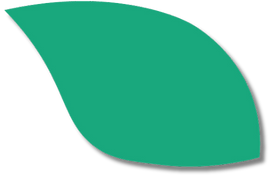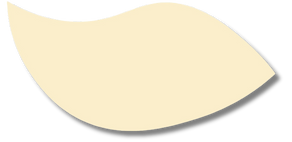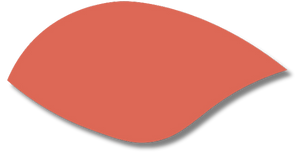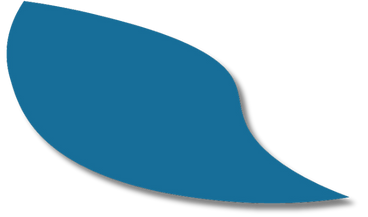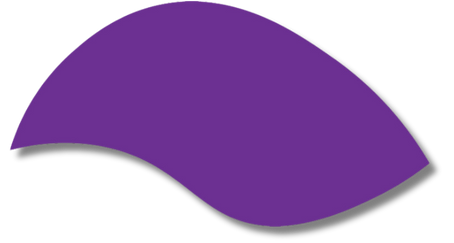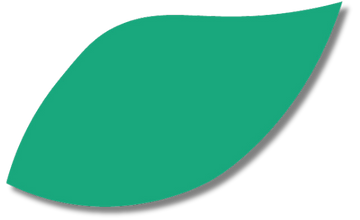
Through personal contact comes MUTUAL UNDERSTANDING.

With the EUROPARC community growing through the 1980s and 90s, new thoughts and challenges were presented.
Diverging ideas about national and nature parks presented difficulties inside EUROPARC. It has not all been “plain sailing” and, as an organisation, it has had had a fair share of troubled times. As a multifaceted Federation with multiple countries, cultures and management approaches, having differences of opinion is to be expected!
“There were times when the organisation threatened to fracture as a result of “perceived” differences. As the HQ was German based and the statutes similarly, some perceived too much control was exercised by that Country. During my time on the council and subsequently as President (1998-2005), there was much work put in to dispelling that perception. Having members of the executive based in Germany but from different countries helped immensely, as did having a member of the French Federation (Bernard Guiheneuf - a real diplomat) elected to the Council."
-Michael Starrett (IE), Former EUROPARC President 2002-2005

At one-point, EUROPARC split along the lines of inhabited and non-inhabited Parks in Europe, something almost inconceivable in the understanding of the 21st century. But the personal contacts and spirit of international cooperation prevailed, with EUROPARC growing from strength to strength having confronted, understood and resolved its internal conflicts.
“The "split", when, due to differences of an essentially political and cultural nature, the "Mediterraneans" had separated from the "Nordics" and I had found myself with the latter, that is, for me, on the geographically "wrong" side, without knowing anything about the story behind it. But in the end, it turned out well because I was able to play a mediating role together with the late Egide Moreau, Belgium, on the one hand, and Theo Burrel, UK, on the other: we managed to settle all disputes and put everyone back together in the interest of protected areas.”
- Patrizia Rossi (IT), Former EUROPARC President 1999-2002
Leelo Kukk, Estonia’s Environmental Board’s deputy director general on wildlife and EUROPARC Council member, explains that willingness to understand, share, cooperate and learn from mistakes is one of her earliest connections with EUROPARC:
“In my previous international cooperation (in fisheries), we were somehow competitors, trying to negotiate to get better outcomes for your country and, quite often, those negotiations run through the night. But here (in EUROPARC), the atmosphere was totally different: it seemed that goals are the same and people are of the same opinion. I am sure that I would have never got so open and honest answers to my questions about how the countries are following the bird directive about nesting season, or how the cutting in forest habitats is controlled, or how evaluating management effectiveness is really going. People in EUROPARC are not trying to hide their imperfections – and this really helps to move forward, to learn from each other’s mistakes.”
- Leelo Kukk (EE), Estonia’s Environmental Board’s deputy director general on wildlife and EUROPARC Council member

Paulo Castro (PT), Former EUROPARC Council member, Treasurer and Charter for Sustainable Tourism chair, reflects too on his experience of working with many people across the EUROPARC network:
“There is a great diversity of people in EUROPARC, in the way we see things, a glass half full or empty, for nature conservation. There has been a great richness in differences. I recall being at a field trip at the EUROPARC conference in Killarney in Ireland. The workshop was about a methodology to assess the landscape, did the mountains give a feeling of safety or danger in the wilderness? The people from flatlands felt more insecure there than those from mountain areas, although it was really just a small hill. We could actually measure, in a scale, just how different our perceptions were from each other and how we saw reality. It really brought home to me the importance of being aware of other’s perceptions.”
- Paulo Castro (PT), Former EUROPARC Council member, Treasurer and Charter for Sustainable Tourism chair
“I have learned that with EUROPARC and witnessed when [sic differences] arise, to move forward. In 1997, at the conference in Grafenau (DE) , local people, dressed in black, carrying dead spruce, rallied at the conference against the decision of the National Park (Bavarian forest) of not removing the dead trees caused by the bark beetle, threatening the tourism of the area. And again, Farmers in Abruzzo, at the conference there in 2010, climbed into trees clanging large cow bells, rallying against the park due to the lack of subsidies.”
- Paulo Castro (PT), Former EUROPARC Council member, Treasurer and Charter for Sustainable Tourism chair
Appreciating and indeed celebrating differences are important values within EUROPARC. The work done to understand sectors and stakeholders who may not hold the same views on nature conservation has always been apparent. EUROPARC Conferences have been critical opportunities for all to come together and learn from each other. There have also been times for people outside our network to voice their views. Paulo Castro reminds of a situation where that has occurred:
On every such occasion, EUROPARC gave space and listened to concerns and occasionally acted as mediator: by bringing international experience to bear to a local issue, the local member was assured of the understanding of their colleagues.
Conferences in the main though, are happy occasions where people take pride in sharing the experience of their area and rejoice in being with like-minded people, enjoying the culture of others, through food, song and dance.



Lello Kukk shares what she has enjoyed and gained from EUROARC conferences.
“Biggest lesson from Swedish conference: to be really successful and inclusive, you have to put more effort into preparation process of protection area. It doesn’t matter if it takes 10 years, you better be very well-prepared to be credible. From every conference we have come back with lots of ideas. Quite many of them will not come into work, but people with whom you discussed, they remain, and this is the biggest value. It's good to have people to whom you can call or e-mail, and you get an honest answer. EUROPARC with its conferences and seminars is like a startup platform. You find the common problems, interests, and partners, and then it’s really up to you. Through EUROPARC, we (Estonia) have really successful co-operations with Finland, Latvia, and Lithuania. And year after year, Sweden is more and more our ”bestie”. "
- Leelo Kukk (EE), Estonia’s Environmental Board’s deputy director general on wildlife and EUROPARC Council member
EUROPARC in its 50 years, has lived through some joyous, but also some challenging times. It was that wish for peace and cooperation, coming from the early initiators who were closer to WW2, that drove the creation of EUROPARC. Sadly, the spectre of war and conflict in Europe remains present and one which still touches EUROPARC and its members. In the 1990s, Eva Pongratz recalls:
“The Federation Board was in Croatia for a Board meeting when the war started there.
We were driven back through the Krka National Park to the Plitvice Lakes National Park.
It seemed kind of strange to all of us, because we only drove such small roads, but nobody told us anything. So, we didn't know. Then we arrived in Plitvice and in the big hotels. There we learned that the situation was very tense and that war was breaking out.“
- Eva Pongratz (D), EUROPARC Director 1986-2007

And again in 2022, war broke out in Europe, with the Russian invasion of Ukraine. There was an urgent concern to work together as Protected Areas in Europe and to stand up for the people and their livelihoods in Ukraine. To be as effective as possible, EUROPARC joined the call of the Frankfurt Zoological Society (FZS) to aid Ukrainian Protected Areas.
EUROPARC members really stepped up with support for our Ukrainian colleagues.
EUROPARC continues to monitor and stay in touch with Ukrainian Protected Area Representatives. A recent webinar (July 2023) allowed the EUROPARC network to hear about the experience of the damage to nature first hand.
The words of the speaker Anastasiia Drapaliuk, who works for the Ukrainian Nature Group, bears witness to the situation and inspires and humbles us in our day-to-day work:
“ ..the help from protected area staff.. has inspired [sic] us [to protect nature], to work in situations when you do not know if you will live tomorrow.”
- Anastasiia Drapaliuk
Our credo of protecting nature through international cooperation remains as important today as it ever was.
The experience of history, knowledge, and values of EUROPARC, led to the creation of a movement of active people, concretely co-operating and building projects to overcome barriers through the EUROPARC Transboundary Parks Programme (TransParcNet): a true European project. TransParcNet issued a joint declaration on the 30th anniversary of the fall of the Berlin Wall, signifying the opening up of Europe.

Phil tells us why meeting new people is important for parks.


Choose a leaf to continue your story journey.

